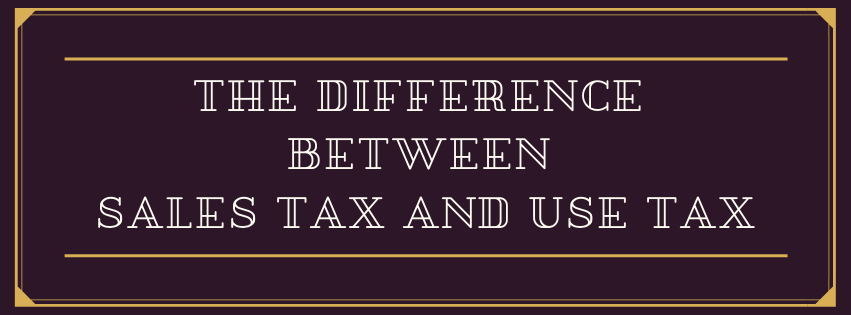Unless you live in one of the five states that do not impose sales tax, the concept of paying a percentage of the purchase price of an item as tax is not a foreign concept. Sales tax is easily collected by sellers and paid by buyer since its rules are so straightforward. However, there are many situations where sales tax is not collected, but use tax must still be paid. In this article, we’ll take a look at the difference between sales tax and use tax and how it affects your business.
What is Use Tax?
Simply put, use tax is that tax that must be paid on goods when sales tax has not been collected. Its purpose is to close any sales tax “loopholes” an ensure that each state collects its fair share of revenue.
Any taxable items you use or purchase are subject to either sales tax or use tax, but not both. Use tax must be reported and reconciled by the individual or business who is purchasing the goods if sales tax was not paid on the purchase at the time of the sale..
For example, if you were to go to a department store in Washington and purchase a pair of shoes, you would pay between 6.5% and 10.4% sales tax on top of the purchase price of your item depending on your location.
However, if you were to drive across the border to Oregon and buy the same pair of shoes, you would only pay the price of the shoes, since Oregon does not collect sales tax on purchases. If you then drove home to Washington and proceeded to wear or sell the same pair of shoes, you would owe use tax on the item.
How Does Use Tax Affect Your Business?
There are several situations where your business is legally responsible for paying use tax. For example, if you buy something tax-free with a wholesaler license but use it internally rather than selling it, you must pay use tax on the item. If your business does giveaways or offers any version of “buy one get one” sales, you must also pay use tax on the items that your customer is getting for free. According to IOFM, there are several businesses that have a high exposure to use tax, such as:
• Construction
• Manufacturing
• Retail
• Hospitality
• Distribution
• Service | Repair
• Medical | Dental
If you work in one of these fields, you may have special provisions for use tax in your state tax codes.
As a general rule, if a product would normally be subject to sales tax if you were purchasing it in a store, but sales tax has not been collected, the item is subject to use tax.
It is important to understand your business’s responsibility regarding use tax to avoid a potential headache in the event that you get audited. Since laws surrounding use tax vary from state to state, consult your local regulations and become familiar with rules that apply to any area in which your company does business.
